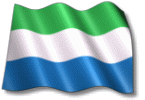
While in Paris for the 41st UNESCO General Conference, Sierra Leone’s Minister of Basic and Senior Secondary School, Dr David Moinina Sengeh accompanied by the Ambassador of EU, Samuel Tamba Musa, engaged the UNESCO Assistant Director-General for Education, Ms Stefania Giannini during a high level bilateral meeting.
In an interview with the Minister at the end of the engagement, Dr Sengeh revealed that three important issues were discussed in the area of the UNESCO programme for Sierra Leone and the country’s role in shaping Global Education.
He observed that: “Sierra Leone is one of the few countries who expanded its education budget during the COVID-19 pandemic and the country continues to lead on conversations on inclusion around the world.”
On gains made in the area of education, the Minister maintained that Sierra Leone focuses on technology and innovation, which are things that need to be promoted, and that the country has a clear focus on evidence-based policy and decision making.
“Because of these gains, the country has taken a lead role in many things related to global education and this is why during the engagement with the UNESCO Assistant Director General of Education, Sierra Leone has been considered to host the global launch of GEM Report in the future,” the Minister stated.
“This programme,” he echoed, “will bring people together from all across the world to Sierra Leone, from the leadership of schools to the UN organizations. So over the next two years, the country will be planning this major global event around education which is a really great honour and privilege for us.”
The Minister of Basic and Senior Secondary School also explained the benefits of such an education gathering, adding that the benefits of education are not immediate but rather are long term. Giving the historical perspective of Sierra Leone’s educational system, once dubbed the Athens of West Africa with the establishment of the University of Sierra Leone, the Minister stressed the importance of investing in education. He added that the world stopped investing in public education in developing countries and it took a long time for such an impact to be felt, as education went rock bottom post-independence in Africa.
He added: “We do not expect it will take another 20 years for us to begin to see the positive effects of current investments because it is a different world. It’s not something that makes an immediate impact. But in this particular instance, we will bring together global leaders on Education Policy, technology companies and more investments in education to work with us in Sierra Leone.”
Dr Sengeh went on to disclose that the issue of Sierra Leone’s difficulty in benefiting from UNESCO due to the country’s inability to account for funds disbursed between 2007 and 2011 was also discussed. He further mentioned the need to have a formal and larger representation of UNESCO in Sierra Leone to expand the UNESCO office in the country.
Another issue that came up during the engagement was his selection as a member of the High-Level Steering Committee of UNESCO, which is the highest body for SDG for education 2020, and also the Global Education Monitoring Report, which Minister Sengeh Chairs. The Steering Committee was inaugurated by French President Emmanuel Macron.


